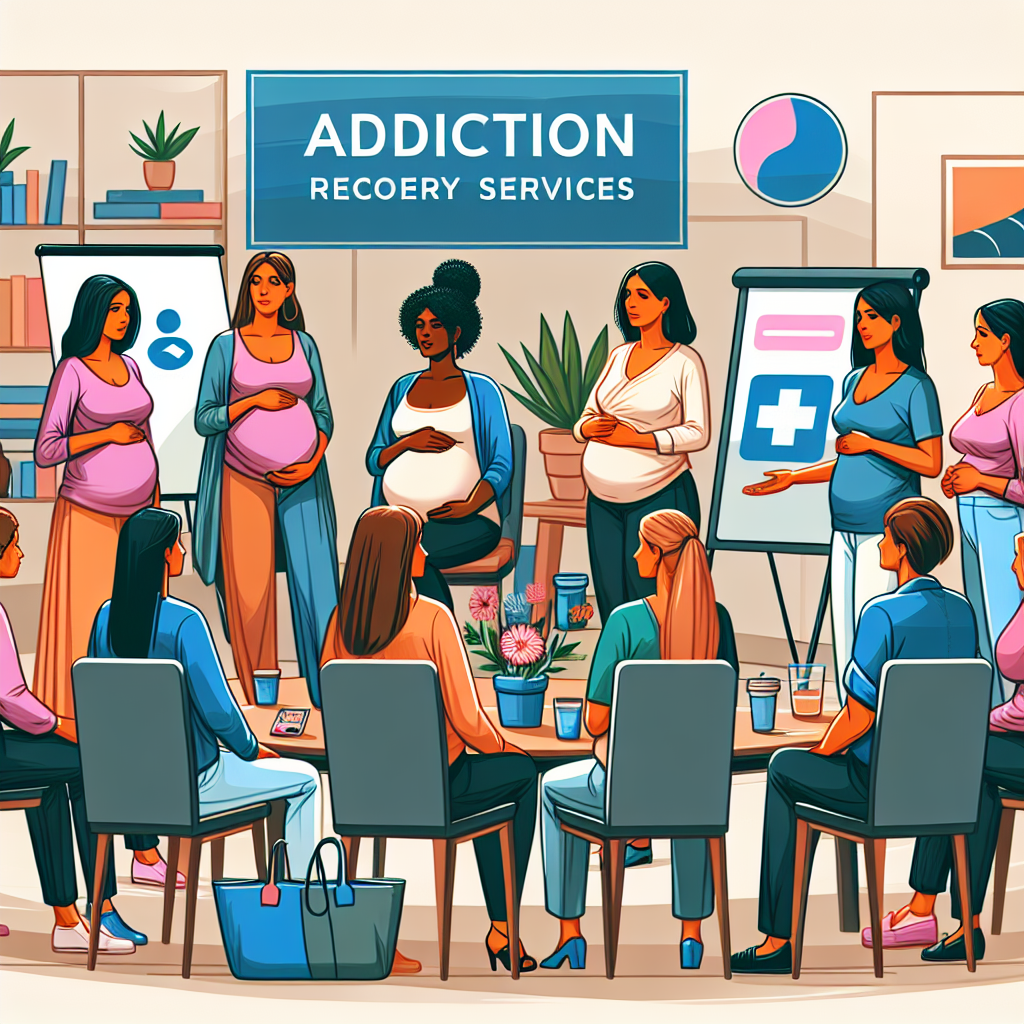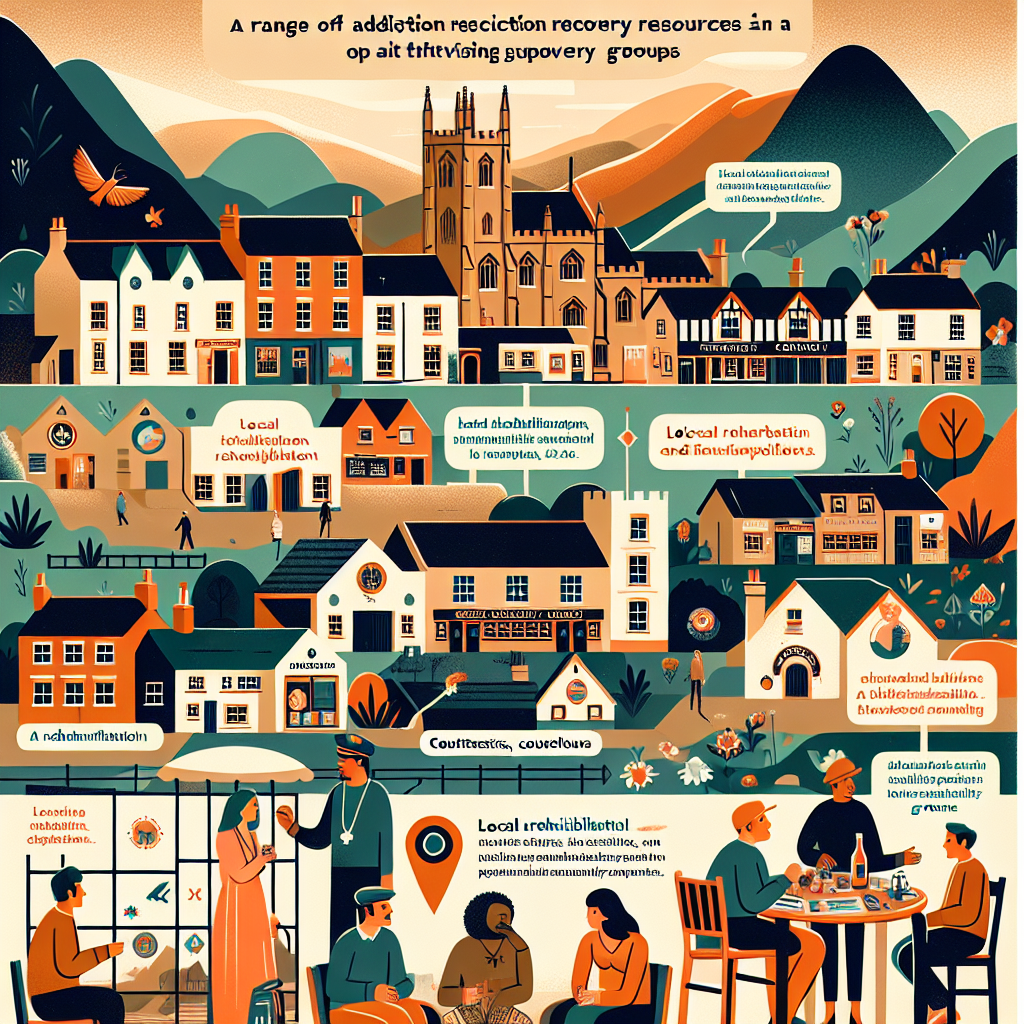-
Table of Contents

“Empowering Pregnant Women: Compassionate Addiction Recovery Services for a Healthier Future”
Introduction
Addiction recovery services for pregnant women are specialized programs designed to address the unique needs and challenges faced by expectant mothers struggling with substance use disorders. These services provide comprehensive care that includes medical, psychological, and social support to ensure the health and well-being of both the mother and the unborn child. Programs often offer a combination of prenatal care, addiction treatment, counseling, and support groups, tailored to help pregnant women achieve and maintain sobriety while preparing for motherhood. The goal is to create a safe and supportive environment that promotes recovery and healthy pregnancy outcomes.
Comprehensive Addiction Recovery Services for Pregnant Women: What You Need to Know
Pregnancy is a transformative period in a woman’s life, filled with anticipation, hope, and a myriad of emotions. However, for those grappling with addiction, this time can also be fraught with additional challenges and concerns. The good news is that comprehensive addiction recovery services tailored specifically for pregnant women do exist, offering a lifeline to those in need. Understanding the availability and scope of these services can be a beacon of hope for expectant mothers seeking a healthier future for themselves and their unborn children.
One of the primary concerns for pregnant women struggling with addiction is the potential impact on their baby’s health. Substance abuse during pregnancy can lead to a range of complications, including premature birth, low birth weight, and developmental issues. Recognizing these risks, many healthcare providers and organizations have developed specialized programs that address the unique needs of pregnant women. These programs are designed to provide a holistic approach to recovery, ensuring that both the mother and the baby receive the care they need.
A key component of these comprehensive services is medical supervision. Pregnant women require specialized medical care to monitor their health and the development of their baby. Addiction recovery programs for pregnant women often include regular check-ups with obstetricians and addiction specialists who work together to create a safe and effective treatment plan. This collaborative approach ensures that any potential complications are identified and managed promptly, reducing the risk of adverse outcomes.
In addition to medical care, these programs also offer a range of therapeutic services. Counseling and therapy are integral parts of addiction recovery, providing women with the tools and support they need to overcome their addiction. Individual therapy sessions allow women to explore the underlying causes of their addiction, while group therapy offers a sense of community and shared experience. Many programs also incorporate family therapy, recognizing the importance of a strong support system in the recovery process.
Moreover, comprehensive addiction recovery services for pregnant women often include educational components. These programs provide valuable information on prenatal care, nutrition, and parenting skills, empowering women to make informed decisions about their health and the health of their baby. By equipping women with knowledge and resources, these programs help to build confidence and foster a sense of control over their recovery journey.
Another crucial aspect of these services is the provision of aftercare support. Recovery is an ongoing process, and the transition from treatment to everyday life can be challenging. Aftercare programs offer continued support through regular check-ins, support groups, and access to resources such as housing and employment assistance. This ongoing support is vital in helping women maintain their sobriety and build a stable, healthy life for themselves and their children.
It is also important to highlight the role of compassion and understanding in these programs. Addiction is often accompanied by feelings of shame and guilt, which can be exacerbated during pregnancy. Comprehensive recovery services for pregnant women are designed to be non-judgmental and supportive, creating a safe space where women can seek help without fear of stigma. This compassionate approach is essential in fostering trust and encouraging women to engage fully in their recovery.
In conclusion, addiction recovery services for pregnant women are not only available but are also comprehensive and tailored to meet their unique needs. By offering medical supervision, therapeutic support, educational resources, and aftercare, these programs provide a holistic approach to recovery. For pregnant women struggling with addiction, these services represent a pathway to a healthier, brighter future for themselves and their babies. With the right support, recovery is not just possible—it is within reach.
Navigating Pregnancy and Addiction: Available Support and Recovery Programs
Navigating the dual challenges of pregnancy and addiction can be an overwhelming experience, but it is important to know that there are specialized recovery services designed to support pregnant women through this difficult journey. These programs recognize the unique needs of expectant mothers and aim to provide comprehensive care that addresses both addiction and prenatal health. Understanding the available support can be the first step toward a healthier future for both mother and child.
One of the primary concerns for pregnant women struggling with addiction is the potential impact on their unborn child. Substance abuse during pregnancy can lead to a range of complications, including premature birth, low birth weight, and developmental issues. However, with the right support, many of these risks can be mitigated. Specialized addiction recovery services for pregnant women often include medical care tailored to monitor and promote fetal health, ensuring that both mother and baby receive the attention they need.
These programs typically offer a multidisciplinary approach, combining medical, psychological, and social support. Medical professionals, including obstetricians and addiction specialists, work together to create a personalized treatment plan. This plan may involve medication-assisted treatment (MAT) to manage withdrawal symptoms safely, as well as regular prenatal check-ups to monitor the baby’s development. By integrating addiction treatment with prenatal care, these services aim to provide a holistic approach that addresses all aspects of a woman’s health.
In addition to medical care, psychological support is a crucial component of recovery programs for pregnant women. Many of these services offer counseling and therapy to help women cope with the emotional and mental challenges of addiction and pregnancy. Group therapy sessions can also provide a sense of community and shared experience, allowing women to connect with others who understand their struggles. This emotional support can be invaluable in helping women stay committed to their recovery journey.
Social support services are another key element of these programs. Many pregnant women facing addiction also deal with issues such as housing instability, lack of access to nutritious food, and limited financial resources. Recovery programs often include case management services to help women navigate these challenges. Case managers can assist with finding safe housing, accessing food assistance programs, and connecting with other community resources. By addressing these social determinants of health, recovery programs aim to create a stable environment that supports long-term recovery.
Moreover, education plays a vital role in these specialized services. Pregnant women in recovery programs often receive education on topics such as prenatal nutrition, childbirth preparation, and parenting skills. This knowledge empowers women to make informed decisions about their health and the health of their baby. It also helps to build confidence and reduce anxiety about the upcoming birth and motherhood.
While the journey of recovery during pregnancy is undoubtedly challenging, it is important to remember that it is also a journey of hope and transformation. Many women have successfully navigated this path and gone on to lead healthy, fulfilling lives with their children. The availability of specialized addiction recovery services for pregnant women means that no one has to face this challenge alone. With the right support, it is possible to overcome addiction and give both mother and baby the best possible start in life.
In conclusion, addiction recovery services for pregnant women provide a lifeline for those facing the dual challenges of substance abuse and pregnancy. By offering comprehensive medical, psychological, and social support, these programs help women navigate this difficult period and work towards a healthier future. The journey may be tough, but with the right resources and support, it is a journey that can lead to profound healing and new beginnings.
Q&A
1. **Question:** Are there specialized addiction recovery services available for pregnant women?
**Answer:** Yes, there are specialized addiction recovery services designed specifically to address the unique needs of pregnant women.
2. **Question:** What types of support do addiction recovery services for pregnant women typically offer?
**Answer:** These services typically offer medical care, counseling, prenatal care, and support groups tailored to the needs of pregnant women dealing with addiction.
Conclusion
Yes, there are addiction recovery services specifically designed for pregnant women. These services often include specialized medical care, counseling, and support programs tailored to address the unique needs and challenges faced by pregnant women struggling with substance abuse. The goal is to ensure both the health of the mother and the developing fetus, providing a comprehensive approach to recovery that includes prenatal care, addiction treatment, and postnatal support.



